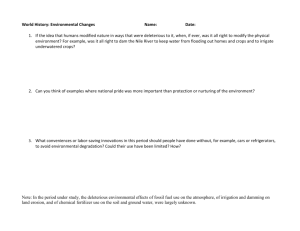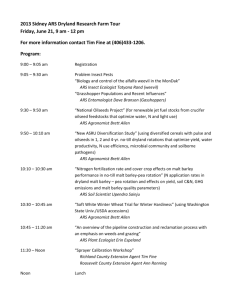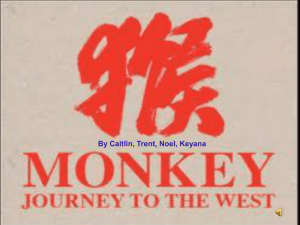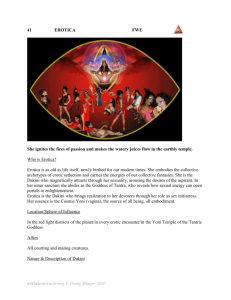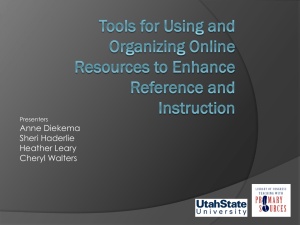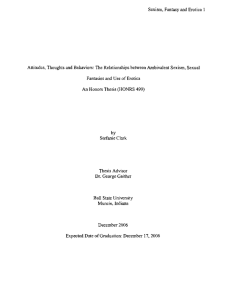Disciplined Desire: the Taoist Arts Erotica and
advertisement
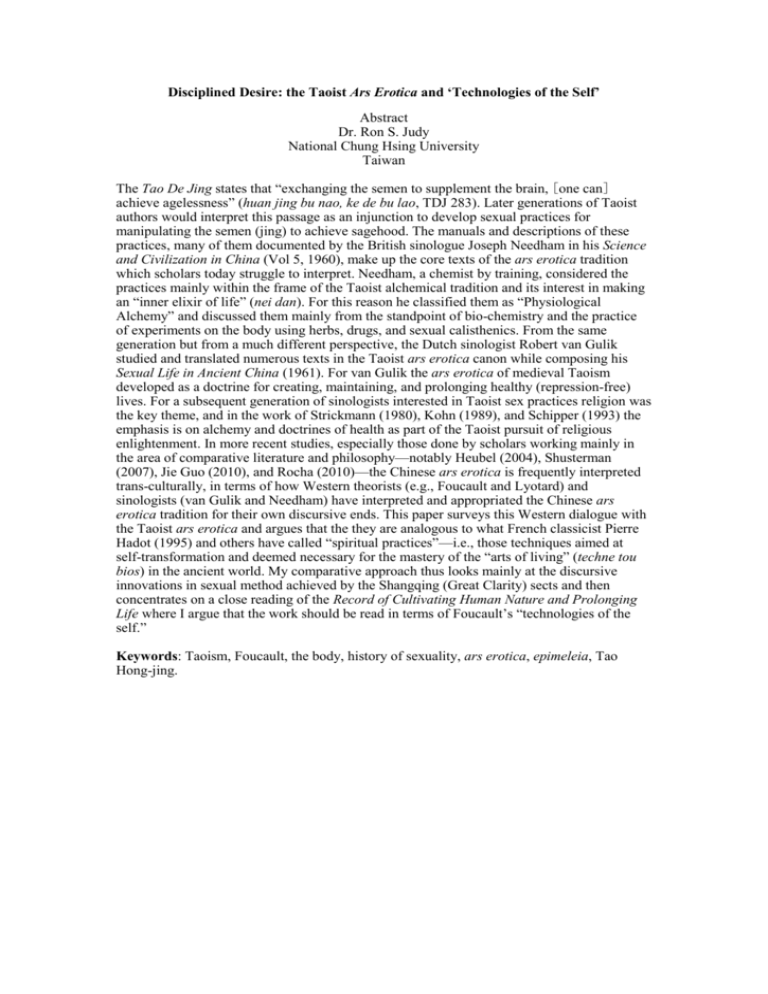
Disciplined Desire: the Taoist Ars Erotica and ‘Technologies of the Self’ Abstract Dr. Ron S. Judy National Chung Hsing University Taiwan The Tao De Jing states that “exchanging the semen to supplement the brain, [one can] achieve agelessness” (huan jing bu nao, ke de bu lao, TDJ 283). Later generations of Taoist authors would interpret this passage as an injunction to develop sexual practices for manipulating the semen (jing) to achieve sagehood. The manuals and descriptions of these practices, many of them documented by the British sinologue Joseph Needham in his Science and Civilization in China (Vol 5, 1960), make up the core texts of the ars erotica tradition which scholars today struggle to interpret. Needham, a chemist by training, considered the practices mainly within the frame of the Taoist alchemical tradition and its interest in making an “inner elixir of life” (nei dan). For this reason he classified them as “Physiological Alchemy” and discussed them mainly from the standpoint of bio-chemistry and the practice of experiments on the body using herbs, drugs, and sexual calisthenics. From the same generation but from a much different perspective, the Dutch sinologist Robert van Gulik studied and translated numerous texts in the Taoist ars erotica canon while composing his Sexual Life in Ancient China (1961). For van Gulik the ars erotica of medieval Taoism developed as a doctrine for creating, maintaining, and prolonging healthy (repression-free) lives. For a subsequent generation of sinologists interested in Taoist sex practices religion was the key theme, and in the work of Strickmann (1980), Kohn (1989), and Schipper (1993) the emphasis is on alchemy and doctrines of health as part of the Taoist pursuit of religious enlightenment. In more recent studies, especially those done by scholars working mainly in the area of comparative literature and philosophy—notably Heubel (2004), Shusterman (2007), Jie Guo (2010), and Rocha (2010)—the Chinese ars erotica is frequently interpreted trans-culturally, in terms of how Western theorists (e.g., Foucault and Lyotard) and sinologists (van Gulik and Needham) have interpreted and appropriated the Chinese ars erotica tradition for their own discursive ends. This paper surveys this Western dialogue with the Taoist ars erotica and argues that the they are analogous to what French classicist Pierre Hadot (1995) and others have called “spiritual practices”—i.e., those techniques aimed at self-transformation and deemed necessary for the mastery of the “arts of living” (techne tou bios) in the ancient world. My comparative approach thus looks mainly at the discursive innovations in sexual method achieved by the Shangqing (Great Clarity) sects and then concentrates on a close reading of the Record of Cultivating Human Nature and Prolonging Life where I argue that the work should be read in terms of Foucault’s “technologies of the self.” Keywords: Taoism, Foucault, the body, history of sexuality, ars erotica, epimeleia, Tao Hong-jing.
